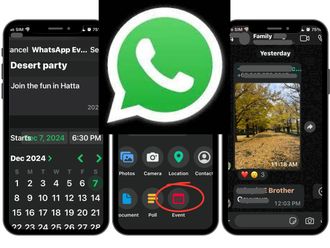
Facebook employees walked away from their work-from-home desks on Monday and took to Twitter to accuse Chief Executive Mark Zuckerberg of inadequately policing US President Donald Trump’s posts as strictly as the rival platform has done.
Dozens of online posts from employees criticised Zuckerberg’s decision to leave Trump’s most inflammatory verbiage unchallenged where Twitter had labelled it. Some top managers participated in the protest, reminiscent of a 2018 walkout at Alphabet Inc’s Google over sexual harassment.
It was a rare case of staff publicly taking their CEO to task, with one employee tweeting that thousands participated.
Among them were all seven engineers on the team maintaining the React code library which supports Facebook’s apps.
“Facebook’s recent decision to not act on posts that incite violence ignores other options to keep our community safe. We implore the Facebook leadership to #TakeAction,” they said in a joint statement published on Twitter.
“Mark is wrong, and I will endeavor in the loudest possible way to change his mind,” wrote Ryan Freitas, identified on Twitter as director of product design for Facebook’s News Feed.
He added he had mobilized “50+ likeminded folks” to lobby for internal change.
A Facebook employee said Zuckerberg’s weekly Friday question-and-answer session would be moved up this week to Tuesday.
Katie Zhu, a product manager at Instagram, tweeted a screenshot showing she had entered “#BLACKLIVESMATTER” to describe her request for time off as part of the walkout.
Facebook Inc will allow employees participating in the protest to take the time off without drawing down their vacation days, spokesman Andy Stone said.
Separately, online therapy company Talkspace said it ended partnership discussions with Facebook. Talkspace CEO Oren Frank tweeted he would “not support a platform that incites violence, racism, and lies.”
Social justice
Tech workers at companies including Facebook, Google, and Amazon.com Inc have pursued social justice issues in recent years, urging the companies to change policies.
Employees “recognize the pain many of our people are feeling right now, especially our Black community,” Stone wrote in a text.
“We encourage employees to speak openly when they disagree with leadership. As we face additional difficult decisions around content ahead, we’ll continue seeking their honest feedback.” Last week, nationwide unrest erupted after the death of a black man, George Floyd, in police custody in Minneapolis last Monday. Video footage showed a white officer kneeling on Floyd’s neck for nearly nine minutes before he died.
On Friday, Twitter Inc affixed a warning label to a Trump tweet that included the phrase “when the looting starts, the shooting starts.” Twitter said it violated rules against glorifying violence but was left up as a public interest exception.
Facebook declined to act on the same message, and Zuckerberg sought to distance his company from the fight between the president and Twitter.
On Friday, Zuckerberg said in a Facebook post that while he found Trump’s remarks “deeply offensive,” they did not violate company policy against incitements to violence and people should know whether the government was planning to deploy force.
Zuckerberg’s post also said Facebook had been in touch with the White House to explain its policies.
Twitter used the same label as for Trump on Monday to hide a message by Representative Matt Gaetz of Florida that likened protesters to terrorists and called for them to be hunted down “like we do those in the Middle East.” Gaetz said in response he would “see” Twitter in the Judiciary Committee.
Some of Facebook’s dissenting employees have praised Twitter for its response over Trump. Others, like Jason Toff, a director of product management and former head of short-form video app Vine, started organizing fundraisers for racial justice groups in Minnesota. Zuckerberg wrote on Facebook on Monday the company would contribute an additional $10 million to social justice causes.
Toff tweeted: “I work at Facebook and I am not proud of how we’re showing up. The majority of coworkers I’ve spoken to feel the same way. We are making our voice heard.”











